Shai Haim
Towards Ultra Rapid Restarts
Feb 18, 2014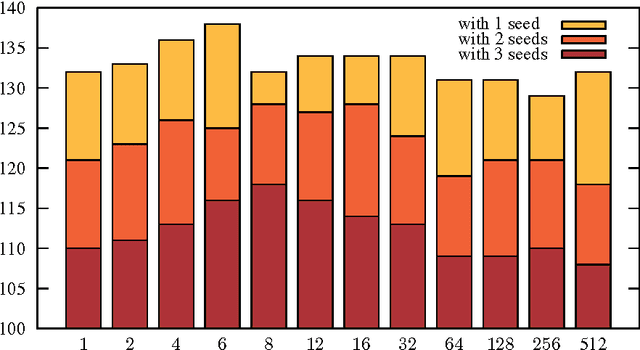
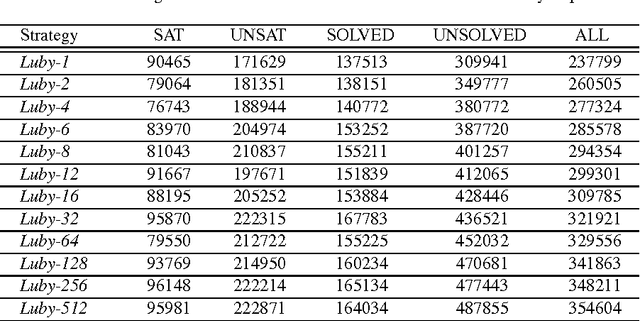
Abstract:We observe a trend regarding restart strategies used in SAT solvers. A few years ago, most state-of-the-art solvers restarted on average after a few thousands of backtracks. Currently, restarting after a dozen backtracks results in much better performance. The main reason for this trend is that heuristics and data structures have become more restart-friendly. We expect further continuation of this trend, so future SAT solvers will restart even more rapidly. Additionally, we present experimental results to support our observations.
Online Search Cost Estimation for SAT Solvers
Jul 29, 2009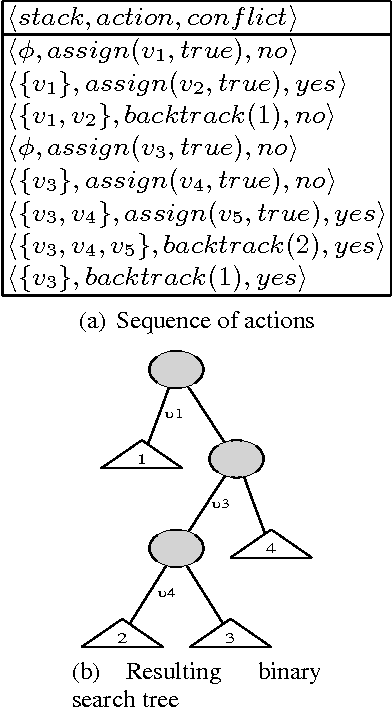
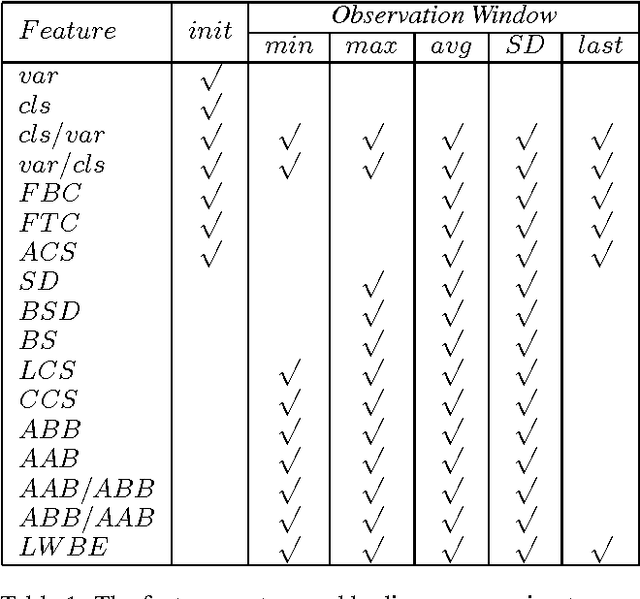
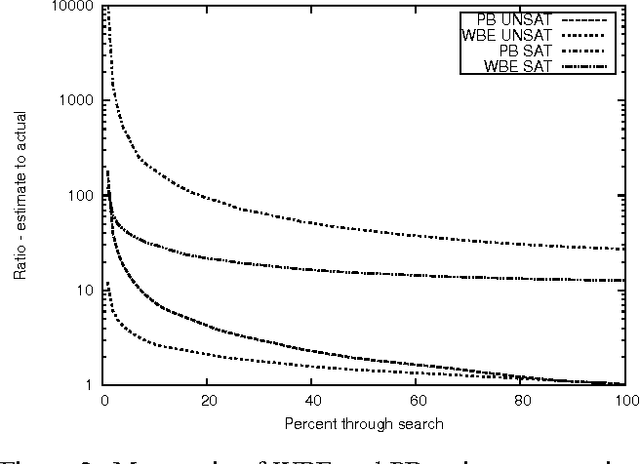
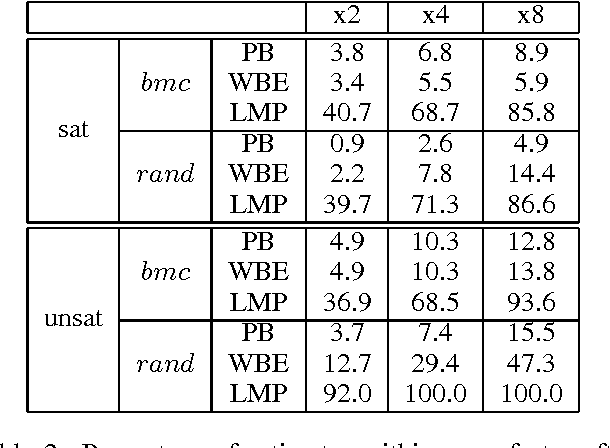
Abstract:We present two different methods for estimating the cost of solving SAT problems. The methods focus on the online behaviour of the backtracking solver, as well as the structure of the problem. Modern SAT solvers present several challenges to estimate search cost including coping with nonchronological backtracking, learning and restarts. Our first method adapt an existing algorithm for estimating the size of a search tree to deal with these challenges. We then suggest a second method that uses a linear model trained on data gathered online at the start of search. We compare the effectiveness of these two methods using random and structured problems. We also demonstrate that predictions made in early restarts can be used to improve later predictions. We conclude by showing that the cost of solving a set of problems can be reduced by selecting a solver from a portfolio based on such cost estimations.
Restart Strategy Selection using Machine Learning Techniques
Jul 29, 2009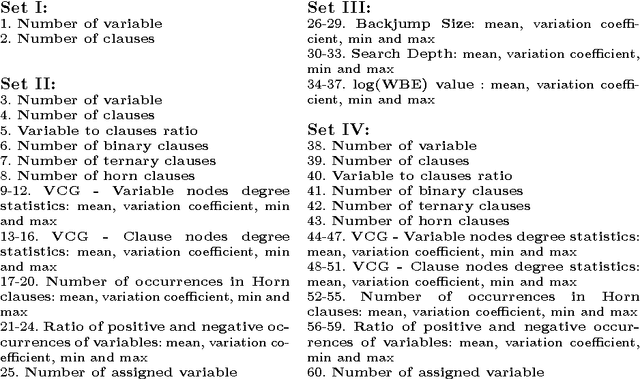


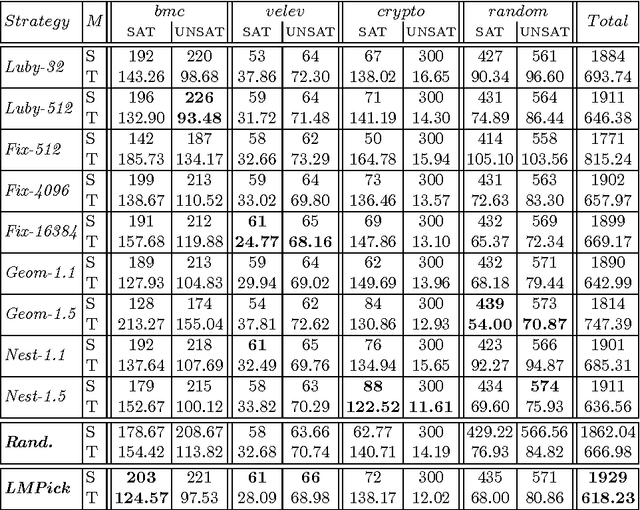
Abstract:Restart strategies are an important factor in the performance of conflict-driven Davis Putnam style SAT solvers. Selecting a good restart strategy for a problem instance can enhance the performance of a solver. Inspired by recent success applying machine learning techniques to predict the runtime of SAT solvers, we present a method which uses machine learning to boost solver performance through a smart selection of the restart strategy. Based on easy to compute features, we train both a satisfiability classifier and runtime models. We use these models to choose between restart strategies. We present experimental results comparing this technique with the most commonly used restart strategies. Our results demonstrate that machine learning is effective in improving solver performance.
Online Estimation of SAT Solving Runtime
Mar 04, 2009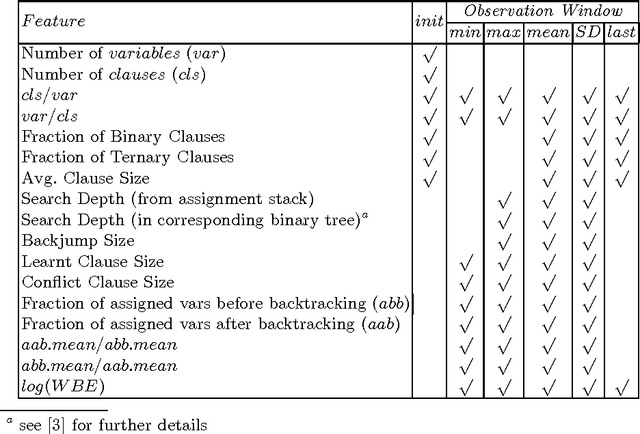
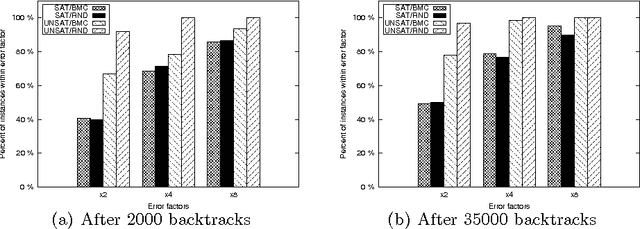
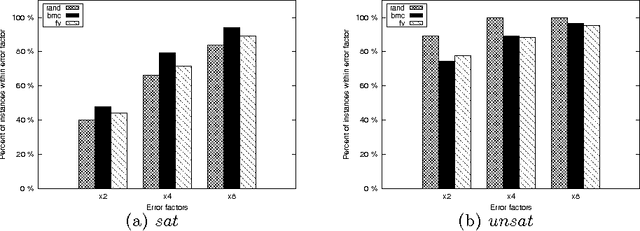
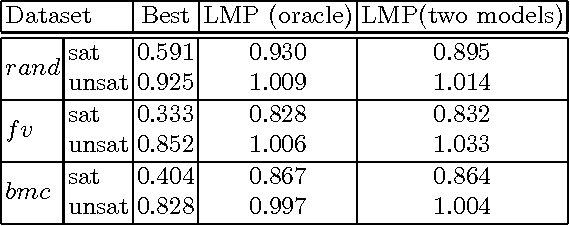
Abstract:We present an online method for estimating the cost of solving SAT problems. Modern SAT solvers present several challenges to estimate search cost including non-chronological backtracking, learning and restarts. Our method uses a linear model trained on data gathered at the start of search. We show the effectiveness of this method using random and structured problems. We demonstrate that predictions made in early restarts can be used to improve later predictions. We also show that we can use such cost estimations to select a solver from a portfolio.
 Add to Chrome
Add to Chrome Add to Firefox
Add to Firefox Add to Edge
Add to Edge